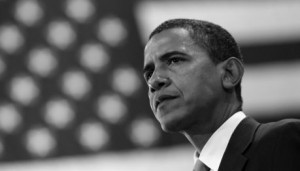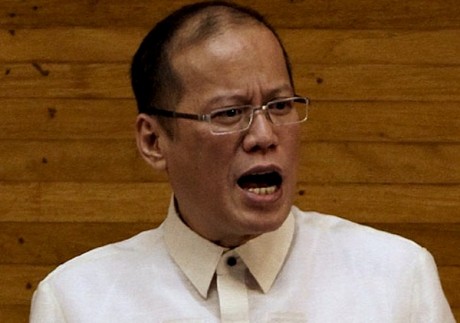
United States President Barack Obama delivered his eighth, and final, State of the Union (SOTU) Address at the United States House of Representatives last January 12, 2016.
Whether or not one agrees with Obama’s politics and policies, and whatever one may think of him, I think it’s hard to deny that not only does he have a great speechwriter, he is one hell of a speaker as well.
You can find the transcript of his speech here, or listen to him deliver it in this video.
| SUPPORT INDEPENDENT SOCIAL COMMENTARY! Subscribe to our Substack community GRP Insider to receive by email our in-depth free weekly newsletter. Subscribe to our Substack newsletter, GRP Insider! Learn more |
I leave the fact-checking of Obama’s SOTU address as a separate topic. There has already been at least one website out there that has done it.
My point of reference, I must define, is that I can’t help but recall Philippine President Benigno Simeon “BS” Aquino’s final State of the Nation address (SONA) from July last year. Quite simply, BS Aquino did a lot of what his critics pretty much expected him to do, based on his previous SONA’s.

Keep in mind that BS Aquino’s supporters have tried to liken him to president Obama in the past, in the sense that they are supposedly both for change. BS Aquino, as his entire term has seemingly shown, was for anything but.
If we think about it, the comparison between their speeches is easy. Obama’s speech is focused on the future, its challenges, and on working together. BS Aquino’s, on the other hand, was fixated on the past, adversarial, divisive, and, for lack of a better term, an undeserved self-congratulating self-fellatio.
Both America and the Philippines will go to the polls for their national elections this year, the former in November, and Filipinos in May. As such, the question persists: what will Filipinos do differently this time, if indeed, enough is enough, and they are finally tired of their 30-year old democracy not working for them? Are they finally going to look for a leader with a vision, and scrutinize the both of them? Are they going to take a more active role in nation building, and not just leave everything to their politicians without holding them accountable? Are they going to not only choose leaders who can bring them together, but bring themselves together and use their diversity to their benefit?
All of that seems like wishful thinking. Filipinos are lazy, mediocre, unnecessarily deferential to their politicians, and too focused on bickering unproductively amongst themselves to do so. Their idea of unity is disregarding and shutting down differences in opinion instead of welcoming them. Plus, they’re definitely not focused on the future; never have been, never will be.
***
Highlights from the State of the Union Address:
Our unique strengths as a nation — our optimism and work ethic, our spirit of discovery, our diversity, our commitment to rule of law — these things give us everything we need to ensure prosperity and security for generations to come.
But such progress is not inevitable. It’s the result of choices we make together. And we face such choices right now. Will we respond to the changes of our time with fear, turning inward as a nation, turning against each other as a people? Or will we face the future with confidence in who we are, in what we stand for, in the incredible things that we can do together?
So let’s talk about the future, and four big questions that I believe we as a country have to answer — regardless of who the next President is, or who controls the next Congress.
First, how do we give everyone a fair shot at opportunity and security in this new economy?
Second, how do we make technology work for us, and not against us — especially when it comes to solving urgent challenges like climate change?
Third, how do we keep America safe and lead the world without becoming its policeman?
And finally, how can we make our politics reflect what’s best in us, and not what’s worst?
And that’s why we need to reject any politics — any politics — that targets people because of race or religion. Let me just say this. This is not a matter of political correctness. This is a matter of understanding just what it is that makes us strong. The world respects us not just for our arsenal; it respects us for our diversity, and our openness, and the way we respect every faith.
The future we want — all of us want — opportunity and security for our families, a rising standard of living, a sustainable, peaceful planet for our kids — all that is within our reach. But it will only happen if we work together. It will only happen if we can have rational, constructive debates. It will only happen if we fix our politics.
A better politics doesn’t mean we have to agree on everything. This is a big country — different regions, different attitudes, different interests. That’s one of our strengths, too. Our Founders distributed power between states and branches of government, and expected us to argue, just as they did, fiercely, over the size and shape of government, over commerce and foreign relations, over the meaning of liberty and the imperatives of security.
But democracy does require basic bonds of trust between its citizens. It doesn’t work if we think the people who disagree with us are all motivated by malice. It doesn’t work if we think that our political opponents are unpatriotic or trying to weaken America. Democracy grinds to a halt without a willingness to compromise, or when even basic facts are contested, or when we listen only to those who agree with us. Our public life withers when only the most extreme voices get all the attention. And most of all, democracy breaks down when the average person feels their voice doesn’t matter; that the system is rigged in favor of the rich or the powerful or some special interest.
What I’m suggesting is hard. It’s a lot easier to be cynical; to accept that change is not possible, and politics is hopeless, and the problem is all the folks who are elected don’t care, and to believe that our voices and actions don’t matter. But if we give up now, then we forsake a better future.
Those with money and power will gain greater control over the decisions that could send a young soldier to war, or allow another economic disaster, or roll back the equal rights and voting rights that generations of Americans have fought, even died, to secure. And then, as frustration grows, there will be voices urging us to fall back into our respective tribes, to scapegoat fellow citizens who don’t look like us, or pray like us, or vote like we do, or share the same background.We can’t afford to go down that path. It won’t deliver the economy we want. It will not produce the security we want. But most of all, it contradicts everything that makes us the envy of the world.
So, my fellow Americans, whatever you may believe, whether you prefer one party or no party, whether you supported my agenda or fought as hard as you could against it — our collective futures depends on your willingness to uphold your duties as a citizen. To vote. To speak out. To stand up for others, especially the weak, especially the vulnerable, knowing that each of us is only here because somebody, somewhere, stood up for us. (Applause.) We need every American to stay active in our public life — and not just during election time — so that our public life reflects the goodness and the decency that I see in the American people every single day.
[Display photo courtesy: wallstreetonparade.com]
- An unconventional proposal to save all versions of Filipino democracy - October 31, 2021
- Revisiting my regard for Noynoy Aquino - June 27, 2021
- Things of the past - November 30, 2018
I tune out with Obama talks — all talk and no action.
typo: *when* not “with”
Most Politicians, talk the talk; but never walk the walk. Obama is a good speaker. Aquino is a lousy speaker.
Works, and results are better than talks.
Why would Filipino’s in the Fail-ippines give a fiddler’s farthing what this porch monkey leader of the USA says in his SOTU ? It is absolutely irrelevant to what is happening in the Fails. The little bit of what actually affects the Philippines has long been decided and is going to happen regardless of what the idiot saus anyway.
As far as Aquino goes? He does what he is told to do, and that is pretty much it. Anyone, and I mean ANYONE, who thinks that an election or one person is going to change anything in the hell-hole that is the Fail-ippines is sadly mistaken. There is only one way change will occur and Filipino’s know what that is but do not have the fortitude to get on with it.
In comparison, the Philippines is all about blaming someone else for one’s misfortunes, while this American says their problems are their own fault. Big difference there.
This is exactly what is wrong with the Failipinos. It is always someone else’s fault (usually it is the politicians’) on what is wrong with the Failippines. We (Failipinos) do not realize–whether we are politicians or not–that we all have something to do (whether big or small, directly or indirectly) on why the Failippines is such a failed nation. Everytime we want to own our own condominium, walk around in biger malls, vacation in nicer resorts, and drive our own private vehicles, we are contributing to the degradation of our country’s natural beauty, and increasing the cost of living for the rest of the poorer sectors of the population to try to keep up with.
If you have an important point to make, don’t try to be subtle or clever. Use a pile driver. Hit the point once. Then come back and hit it again. Then hit it a third time – a tremendous whack.